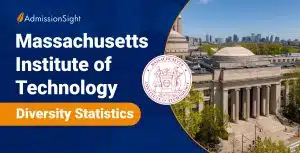Acing Your USC Interview: Tips for Success
The University of Southern California (USC) has a rigorous admissions process that includes a personal interview. The few students who get this far in the process have already impressed USC with their transcripts and personal essays. Now it’s time to impress them in person. This article aims to guide you to succeed in your USC interview and what you need to know about the entire process.
Understanding the USC Interview Process
Before delving into preparations for the USC interview, it’s crucial to understand what you’re getting into. An interview can seem daunting, but a good understanding of the process can make it less intimidating and ultimately more manageable.
The Purpose of the USC Interview
The USC interview is not merely a protocol; it serves a significant purpose. This is USC’s way of getting to know you on a more personal level. They are not just interested in your academic achievements and extracurricular involvement; they want to know about your goals, motivations, values, and personality traits. The interview is an opportunity for USC to see if you are a good fit for their community.
During the interview, you will have the chance to showcase your unique qualities and experiences that may not be evident in your application. This is your opportunity to bring your story to life and demonstrate why you would be a valuable addition to the USC community. The interviewers will be looking for authenticity, passion, and a genuine interest in the university.
What to Expect During the Interview
The USC Interview typically lasts about 20-30 minutes and will be conducted by a USC Alum who lives in your area. The interview can take place in a public setting such as a coffee shop, or in some cases, over Skype or other video platforms. It’s a casual conversation type of interview where they get to know more about you as a person.
During the interview, you can expect a range of questions that will help the interviewer understand your personality, interests, and goals. Some common questions may include:
- Tell me about yourself and your background.
- Why are you interested in attending USC?
- What are your academic and career goals?
- How do you plan to contribute to the USC community?
- Can you share a challenging experience you’ve faced and how you overcame it?
- What extracurricular activities or hobbies are you passionate about?
It’s important to prepare thoughtful and genuine responses to these questions. Reflect on your experiences and think about how they have shaped you as an individual. Be prepared to provide specific examples that highlight your strengths and demonstrate your potential to thrive at USC.
Remember, the interview is not just about answering questions. It’s also an opportunity for you to ask questions and learn more about USC. Prepare a few questions in advance to show your genuine interest in the university and to gain valuable insights about the campus culture, academic programs, and student life.
Lastly, don’t forget to dress appropriately for the interview. While it may be a casual conversation, it’s still important to make a good impression. Dressing professionally shows that you take the interview seriously and respect the opportunity to engage with a USC representative.
Preparing for Your USC Interview
Success in any interview is built on preparation. The same applies to the USC interview. Luckily, with the right strategies, you can adequately prepare and increase your chances of impressing your interviewer.
When it comes to preparing for your USC interview, there are several key steps you can take to ensure you are fully ready. One of the most important aspects of preparation is researching the university itself. Being knowledgeable about the school is essential when preparing for your USC interview. You must have a clear understanding of what USC stands for, its values, programs, and culture.
Take the time to explore the university’s website, read about its history, and familiarize yourself with its academic departments and extracurricular opportunities. Having detailed knowledge about the school will demonstrate your genuine interest in the university and show the interviewer that you have taken the time to learn about USC beyond just its name.
Researching About USC
Being knowledgeable about the school is essential when preparing for your USC interview. You must have a clear understanding of what USC stands for, its values, programs, and culture. Having detailed knowledge about the school will demonstrate your genuine interest in the university.
Furthermore, it is beneficial to reach out to current students or alumni who can provide you with firsthand insights into the USC experience. By speaking with individuals who have already been through the interview process or have attended USC, you can gain valuable information that will help you tailor your interview responses to align with the university’s values and goals.
Reflecting on Your Personal and Academic Achievements
Apart from knowing about USC, it’s equally important to understand yourself. Reflect on your academic achievements, extracurricular activities, leadership roles, and personal experiences. This self-analysis will not only prepare you to talk confidently about your experiences but also help you connect these experiences to how you can contribute to the USC community.
Take the time to think about specific instances where you have demonstrated leadership, problem-solving skills, or resilience. Consider how these experiences have shaped you as an individual and how they align with USC’s values. By reflecting on your personal and academic achievements, you will be better equipped to articulate your strengths and unique qualities during the interview.
Anticipating Common USC Interview Questions
While you cannot predict every question you will be asked, there are a few common questions that frequently come up during USC interviews. Questions like ‘Why USC?’, ‘What can you contribute to USC?’, ‘Tell us about a time you faced a challenge and overcame it.’ Preparing thoughtful responses to these common questions will help you speak confidently and convincingly.
When preparing your responses, consider incorporating specific examples from your own experiences that demonstrate your alignment with USC’s values and mission. Think about how your skills, interests, and goals align with what USC has to offer. By anticipating these common interview questions and preparing well-thought-out responses, you will be able to showcase your passion for USC and your ability to contribute to the university community.
In conclusion, preparing for your USC interview requires a combination of researching the university, reflecting on your personal and academic achievements, and anticipating common interview questions. By taking the time to adequately prepare, you will be able to confidently articulate your interest in USC and demonstrate how you can contribute to the university community.
Mastering the Art of Communication
Effective communication is the backbone of any successful interview. This includes both verbal and non-verbal communication. Mastering both these aspects can greatly increase your chances of acing the USC interview.
When it comes to verbal communication, clarity and articulation are key. It’s important to clearly communicate your thoughts, experiences, and aspirations. However, it’s equally important to strike a balance between being concise and providing enough detail. While it’s important to avoid rambling, you also want to ensure that you provide enough information to showcase your qualifications and skills.
One tip to improve your verbal communication skills is to practice your answers beforehand. This can help you become more comfortable with expressing your thoughts and ideas in a clear and organized manner. Additionally, practicing can also help you become more fluent in your speech, allowing you to speak confidently and without hesitation.
Non-verbal communication is just as important as verbal communication during an interview. Your body language and non-verbal cues can say as much as your words. One crucial aspect of non-verbal communication is maintaining eye contact. By maintaining eye contact with the interviewer, you can convey confidence, attentiveness, and engagement. It shows that you are actively listening and interested in the conversation.
Another non-verbal communication strategy is to practice good posture. Sitting up straight and maintaining a relaxed yet attentive posture can convey professionalism and confidence. It also helps to avoid any fidgeting or nervous movements, as these can be distracting and may give the impression that you are not fully present in the interview.
Lastly, remember to smile. A warm and approachable demeanor can give you an edge in the interview. Smiling not only helps to create a positive and friendly atmosphere, but it also shows that you are comfortable and confident in your abilities. It can help to establish a connection with the interviewer and make you more memorable.
By mastering both verbal and non-verbal communication, you can effectively convey your qualifications, skills, and personality during the USC interview. Remember to practice, stay confident, and be yourself.
Showcasing Your Personality and Passion
Demonstrating your authentic self and passion in the interview can truly set you apart from other candidates. Moreover, your personality and passion can also influence whether your interviewer sees you as a good fit for USC.
When it comes to showcasing your personality, it’s important to remember that USC values diversity and individuality. They want to see what makes you unique and how you can contribute to their vibrant community. So, don’t be afraid to let your true self shine during the interview.
One way to express your passion is by sharing personal stories and experiences that have shaped your journey. For example, if you’re applying to USC’s film program, you can talk about how you fell in love with storytelling at a young age and how that passion has driven you to pursue a career in filmmaking.
Expressing Your Interest in USC
Show your passion for USC by expressing why you are drawn to their programs and culture. Explain what you find appealing about USC and how it aligns with your goals and values. It’s important, however, to ensure your interest comes off as genuine and not rehearsed or exaggerated.
One way to demonstrate your interest is by researching USC’s programs and highlighting specific aspects that resonate with you. For instance, if you’re interested in USC’s business school, you can mention how their emphasis on entrepreneurship aligns with your own aspirations of starting your own company someday.
Additionally, you can also mention any USC alumni or faculty members who have inspired you and influenced your decision to apply. This shows that you have done your homework and have a genuine interest in becoming a part of the USC community.
Highlighting Your Unique Qualities
Everyone has qualities that make them unique. Reflect on what sets you apart and be prepared to share these qualities during your interview. Whether it’s your passion for community service, your leadership skills, or your unique cultural experiences, showcasing these qualities can contribute to a positive and memorable interview.
When highlighting your unique qualities, it’s important to provide specific examples that demonstrate how these qualities have impacted your life and the lives of others. For example, if you have a strong passion for community service, you can talk about a specific volunteer project you initiated and how it made a difference in your community.
Furthermore, don’t be afraid to discuss any challenges you have faced and how you have overcome them. This shows resilience and determination, qualities that USC values in their students.
In conclusion, showcasing your personality and passion during the interview is crucial in making a lasting impression on the USC admissions team. By expressing your genuine interest in USC and highlighting your unique qualities, you can demonstrate why you are a perfect fit for their community and increase your chances of being accepted.
Post-Interview Etiquette
A successful interview doesn’t end once you say goodbye to your interviewer. What you do after the interview can also influence the impression you leave on your interviewer.
Sending a Thank You Note
A few hours after the interview, send a personalized thank you note to your interviewer. This is not only an act of good manners but also reaffirms your interest in USC. Your note can mention something interesting you discussed during the interview or express your gratitude for the opportunity to learn more about USC.
Following Up After the Interview
After sending a thank you note, you might still need to follow up with your interviewer, particularly if you have unanswered questions or need to provide them with additional information. Make sure not to become a nuisance by following up too frequently or asking questions that you can easily find answers to yourself.
Conclusion
Acing the USC interview requires in-depth understanding of the process, thorough preparation, effective use of communication strategies, and an authentic representation of your personality and passion. By incorporating these tips into your preparations, you can increase your chances of succeeding in your USC interview.









































